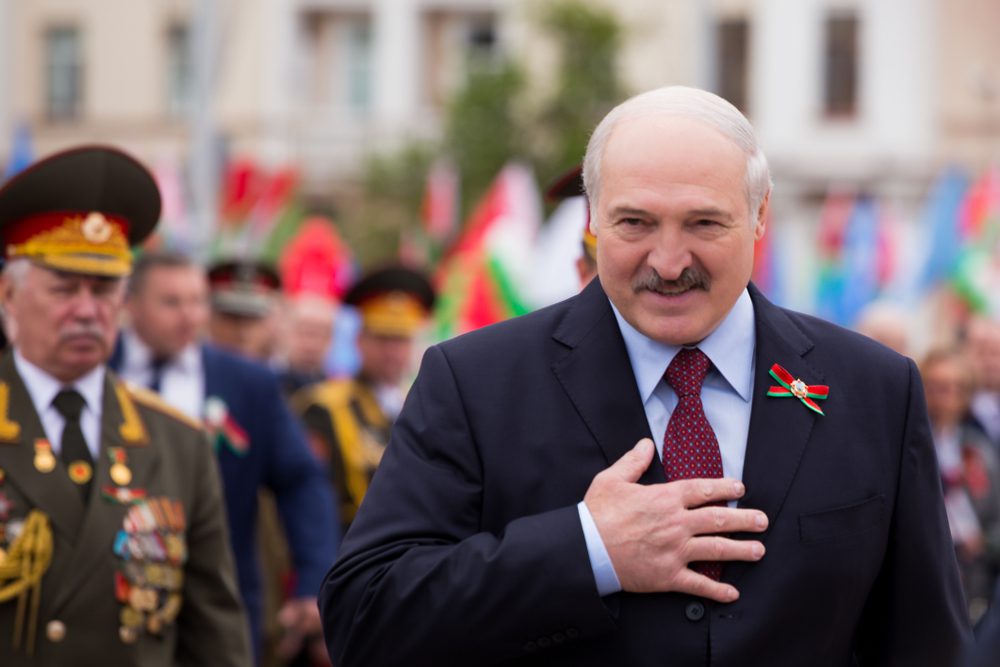
An old worry of NATO military brass has materialized. The Belarusian referendum, held on Sunday, has approved its new Constitution. One of its amendments now allows for allied Russia to move its nuclear weapons onto Belarusian soil—a first since the Soviet Union imploded.
New powers have been given to the All-Belarusian People’s Assembly, a concoction of Belarusian President Alexander Lukashenko which is populated by party loyalists. In addition, Lukashenko has been granted lifetime immunity from prosecution once he leaves office. As a result, opposition to him has become increasingly unviable.
Given the iron grip Belarusian President Alexander Lukashenko already had on the country, the outcome was not unexpected. The Belarusian Central Elections Commission stated that 65.2% of voters were in favor, 10.1% against, with a turnout at 78.6%. External verification proved impossible due to a lack of independent election monitors. The West has refused to recognize the referendum’s outcome due to Belarus’ human rights violations.
In a joint statement released late last year, the four opposition parties had declined to monitor the process, citing concerns about ongoing persecution. Ever since the disputed 2020 election, which saw mass protests, opposition figures and journalists have faced severe crackdowns by authorities, which saw many imprisoned.
The development has put further on edge a region already close to the breaking point. The Belarusian leader, who had never endeared himself to his neighbors, has made himself even less so. On February 24th, his country was one of Russian President Putin’s launching pads for his invasion of Ukraine, now entering its second week of fighting.
Responses to the referendum came swiftly. On Monday, European Union foreign policy chief Josep Borrell tweeted that “yesterday’s constitutional referendum in Belarus was orchestrated by Lukashenko to gain additional tools to further consolidate his power,” and that “the deletion of Article 18 on Belarus’ non-nuclear status is greatly worrying.”
Yesterday's constitutional referendum in #Belarus was orchestrated by Lukashenko to gain additional tools to further consolidate his power.
— Josep Borrell Fontelles (@JosepBorrellF) February 28, 2022
The deletion of Article 18 on Belarus’s non-nuclear status is greatly worrying.
The #EU continues to stand by the Belarusian people. https://t.co/varLYY3Nrt
That same day, an EU official who asked to remain nameless, said that the EU would announce fresh sanctions against Belarus this week for its assistance in the Russian invasion of Ukraine. These would hit its exports, oligarchs, central bank, and would block Belarusian access to SWIFT. The sanctions may also work to hurt Russia’s economy. After he received western sanctions for his draconian repression of the 2020 protests, Lukashenko turned to Russia to secure loans that would offset their effect, loans that may now default.
The U.S. demonstrated its own disapproval by closing its embassy in the Belarusian capital of Minsk, while giving non-emergency personnel and family members the option of leaving its Moscow embassy.
Lukashenko’s rival in the 2020 election, the now exiled opposition leader Sviatlana Tsikhanouskaya, took to Twitter upon hearing the outcome. She called the referendum a “shame” and a “sham,” adding that “there can’t be any recognition of the ‘referendum’ and its outcomes.”
The regime's "referendum" is a shame and sham. It was held untransparently with multiple violations of the Belarus laws and international standards, while the people face the unprecedented crackdown. There can't be any recognition of the "referendum" and its outcomes. pic.twitter.com/rTYhnwuAR1
— Sviatlana Tsikhanouskaya (@Tsihanouskaya) February 28, 2022
The referendum and the country’s involvement in the Ukraine war sparked protests all over Belarus. On social media, citizens are seen to be protesting their government, their faces intentionally blurred for protection against authorities. At least 290 have been detained thus far, rights activists say. It is estimated that Belarus currently houses 1,077 political prisoners.
